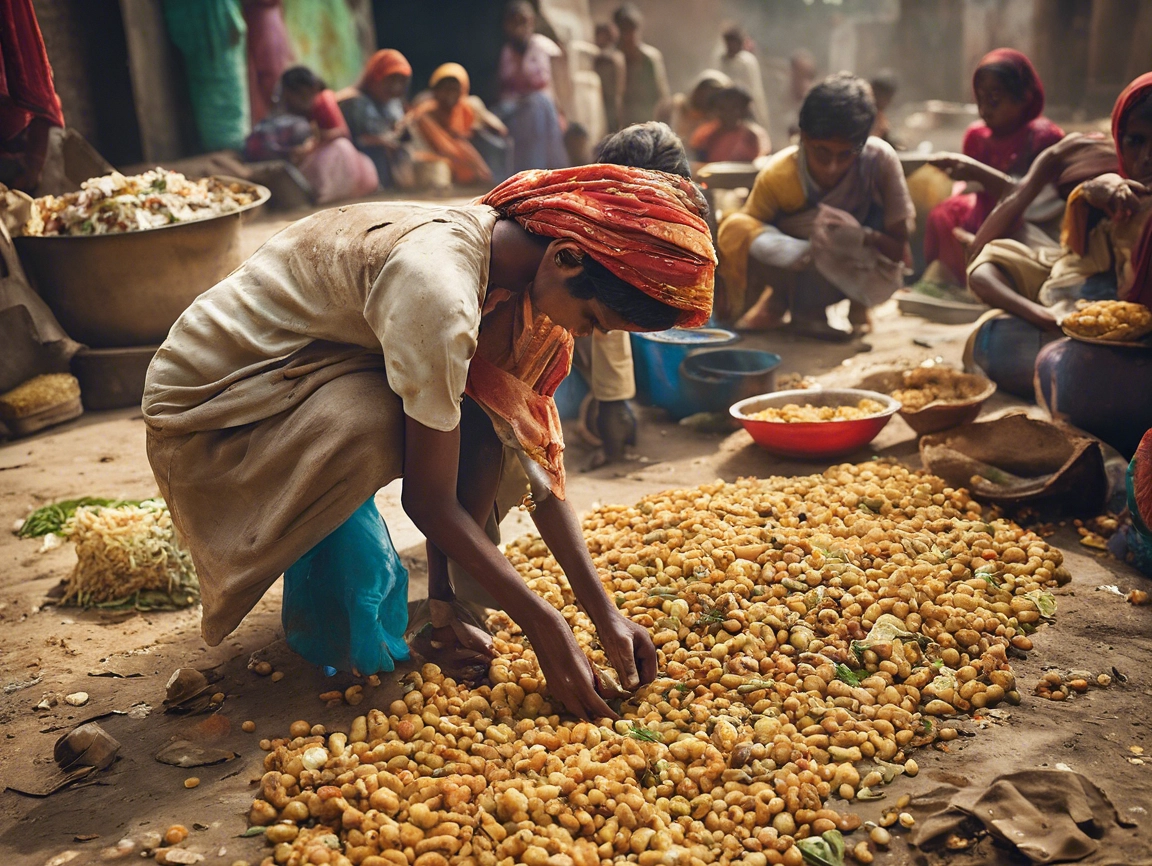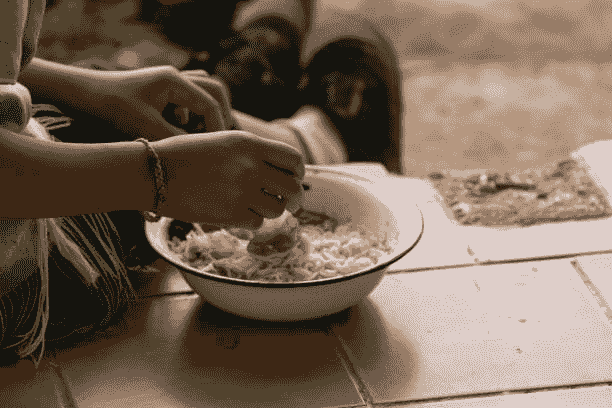Understanding the Hunger Crisis in India: Why Every Grain of Food MattersSees boom in younger volunteers following pandemic
In a country as vast and diverse as India, the contrast between abundance and scarcity is striking. On the one hand, India is one of the largest producers of food in the world. On the other hand, it also faces one of the most pressing food security crises globally. Food waste, malnutrition, and hunger coexist in ways that challenge both our sense of morality and sustainability.
Hunger in India: The Reality Behind the Numbers
India ranks 107th out of 121 countries in the Global Hunger Index (GHI) 2023. Although progress has been made in reducing extreme hunger, nearly 194 million people in India, or 14% of the population, still face hunger on a daily basis. This means that one out of every six people in the country goes to bed hungry.
- 1.4 million children die each year in India from hunger and malnutrition.
- 22% of children under the age of five are stunted due to lack of proper nutrition.
- 36% of India’s population still lives below the poverty line, making access to healthy and sufficient food a daily struggle.
While the numbers are staggering, they paint only a partial picture of the deep-rooted problem of hunger in India. The situation is more alarming when we consider the environmental and economic costs of food waste.
Food Waste: A Growing Problem
Despite the widespread hunger, India is estimated to waste around 67 million tonnes of food annually—a figure worth approximately ₹92,000 crores. This amount of wasted food could easily feed millions of people struggling with hunger. The irony is that food is often wasted at weddings, parties, restaurants, and even in households, while countless people outside those very settings go hungry.
The United Nations estimates that about 40% of food produced in India is wasted due to inefficiencies in storage, transportation, and distribution. However, individual responsibility plays an equally significant role. Each time we discard food after overfilling our plates or allow food to spoil in our kitchens, we contribute to this growing crisis.
Why Every Meal Matters
When we waste food, we don’t just waste the food itself but also the water, energy, and resources used to produce it. Every wasted grain of rice or piece of bread means the labor of farmers, the use of precious water, and the environmental footprint of transportation all go in vain. At a time when global food prices are rising and millions of people are unable to afford even basic sustenance, our everyday choices can make a difference.
Imagine if each of us made a conscious effort to reduce food waste. Simple changes—taking only as much as we need, saving leftovers, and donating surplus food—can go a long way in addressing this issue. In fact, reducing food waste by just 25% globally could provide enough food to feed 870 million hungry people worldwide, including millions in India.
Taking Action: What You Can Do
While the government, NGOs, and organizations like GCT Trust are working to combat hunger, individuals can play an essential role by:
- Minimizing Waste at Home: Be mindful of portion sizes. Plan meals carefully and store leftovers for the next day.
- Supporting Food Donation Initiatives: Donate extra food to organizations that serve the hungry, instead of letting it go to waste.
- Raising Awareness: Educate your family and friends about the importance of reducing food waste. Encourage your community to take action against hunger.
- Participating in Local Initiatives: Join or support local food drives, and volunteer with organizations working on hunger and food distribution programs.
Conclusion: A Collective Responsibility
Hunger is not just a global issue but a deeply personal one. The choices we make each day—whether to finish a meal or discard it—can either perpetuate or alleviate this crisis. By valuing the food we have and sharing with those who do not, we can help bridge the gap between abundance and hunger. It’s time to recognize that every grain of food counts.
Let’s not take food for granted. Let’s stand together to reduce food waste and ensure that no one in India goes hungry.
“Food is not just fuel, it’s a gift from nature. When we waste it, we waste the efforts of everyone who made it possible.”
References:
- Global Hunger Index 2023: Global Hunger Index, available at Global Hunger Index
- The Hunger-Food Waste Paradox in India: Mithilesh Kumar Sinha, Eastern Mirror, available at Eastern Mirror
- India’s Per Capita Food Waste: Jitendra Choubey, New Indian Express, available at New IndianExpress
Author: Jayanth Chowdeswar Settibhaktuni
Published by GCT Trust










